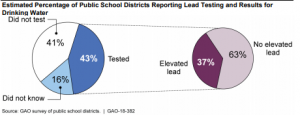Who Are the Old Folks in Prison? Part I
 Nationally, the number of senior citizens in prison has grown dramatically in recent years. In Wisconsin, for instance, the number of prisoners aged 60 or older grew from just 202 (or 1.2 percent of the total) in 2000 to 1,231 (5.4 percent) by the end of 2016. Such increases should be of public concern for a number of reasons, including the exceptionally high costs of incarcerating the elderly. To a great extent, these costs are related to the prevalence of chronic illnesses and physical and mental disabilities among older inmates. One national study estimated that the average cost of imprisoning a senior is about twice the overall average. In general, it is less costly to manage chronic health problems in the community than in prisons, which are not designed to function as assisted living facilities, and which tend to be located in rural areas at some distance from specialized treatment providers.
Nationally, the number of senior citizens in prison has grown dramatically in recent years. In Wisconsin, for instance, the number of prisoners aged 60 or older grew from just 202 (or 1.2 percent of the total) in 2000 to 1,231 (5.4 percent) by the end of 2016. Such increases should be of public concern for a number of reasons, including the exceptionally high costs of incarcerating the elderly. To a great extent, these costs are related to the prevalence of chronic illnesses and physical and mental disabilities among older inmates. One national study estimated that the average cost of imprisoning a senior is about twice the overall average. In general, it is less costly to manage chronic health problems in the community than in prisons, which are not designed to function as assisted living facilities, and which tend to be located in rural areas at some distance from specialized treatment providers.
Fiscal and humanitarian concerns alike have sparked considerable interest in recent years in “compassionate release” and other mechanisms that might hasten the return of elderly prisoners to the community. On the other hand, there are also countervailing concerns that early release might endanger the public or depreciate the seriousness of the underlying criminal offenses. On both sides of the debate, there seems a tendency to rely on unexamined stereotypes about who the old folks in prison are—the frail, harmless grandparent serving an excessively harsh sentence for a long-ago offense, versus the confirmed predator whose dangerousness can never be fully erased by age.
In order to develop a clearer picture of this population, and with the help of two diligent research assistants[1], I set out to gather some data on the Wisconsin prisoners who are aged 70 or older.


